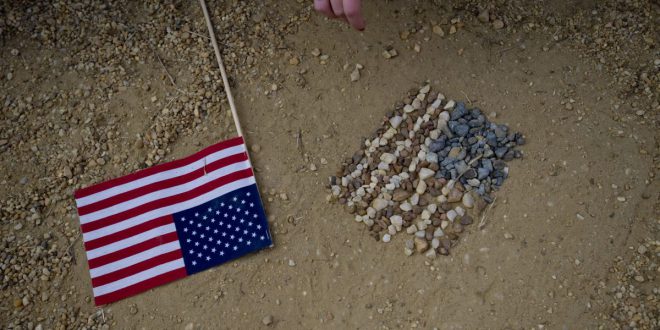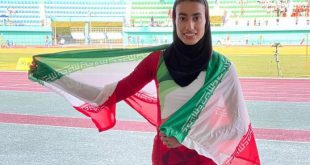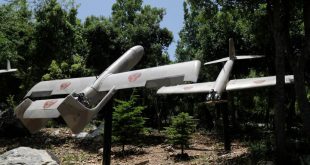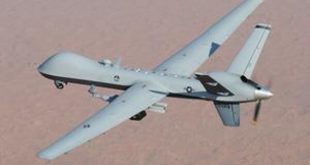WASHINGTON (Dispatches) – U.S. President Donald Trump has pardoned four security guards from the private military firm Blackwater who were serving jail sentences for killing 14 civilians including two children in Baghdad in 2007, a massacre that sparked an international outcry over the use of mercenaries in war.
The four guards – Paul Slough, Evan Liberty, Dustin Heard and Nicholas Slatten – were part of an armored convoy that opened fire indiscriminately with machine-guns, grenade launchers and a sniper on a crowd of unarmed people in a square in the Iraqi capital.
The Nisour Square massacre was one of the lowest episodes of the U.S.-led invasion and occupation of Iraq.
Slough, Liberty and Heard were convicted on multiple charges of voluntary and attempted manslaughter in 2014, while Slatten, who was the first to start shooting, was convicted of first-degree murder. Slattern was sentenced to life and the others to 30 years in prison each.
An initial prosecution was thrown out by a federal judge – sparking outrage in Iraq – but the then vice-president, Joe Biden, promised to pursue a fresh prosecution, which succeeded in 2015.
After news of the pardon emerged on Tuesday night, Brian Heberlig, a lawyer for one of the four pardoned Blackwater defendants, said: “Paul Slough and his colleagues didn’t deserve to spend one minute in prison.”
The pardons are one of several the U.S. president has granted to American service personnel and contractors accused or convicted of crimes against non-combatants and civilians in war zones. In November
The four guards – Paul Slough, Evan Liberty, Dustin Heard and Nicholas Slatten – were part of an armored convoy that opened fire indiscriminately with machine-guns, grenade launchers and a sniper on a crowd of unarmed people in a square in the Iraqi capital.
The Nisour Square massacre was one of the lowest episodes of the U.S.-led invasion and occupation of Iraq.
Slough, Liberty and Heard were convicted on multiple charges of voluntary and attempted manslaughter in 2014, while Slatten, who was the first to start shooting, was convicted of first-degree murder. Slattern was sentenced to life and the others to 30 years in prison each.
An initial prosecution was thrown out by a federal judge – sparking outrage in Iraq – but the then vice-president, Joe Biden, promised to pursue a fresh prosecution, which succeeded in 2015.
After news of the pardon emerged on Tuesday night, Brian Heberlig, a lawyer for one of the four pardoned Blackwater defendants, said: “Paul Slough and his colleagues didn’t deserve to spend one minute in prison.”
The pardons are one of several the U.S. president has granted to American service personnel and contractors accused or convicted of crimes against non-combatants and civilians in war zones. In November
last year, he pardoned a former U.S. army commando who was set to stand trial over the killing of an Afghan, and a former army lieutenant convicted of murder for ordering his men to fire at three Afghans.
Prosecutors asserted the heavily armed Raven 23 Blackwater convoy launched an unprovoked attack using sniper fire, machine-guns and grenade launchers. Defense lawyers argued their clients returned fire after being ambushed by Iraqi insurgents.
The U.S government said in a memorandum filed after the sentencing: “None of the victims was an insurgent, or posed any threat to the Raven 23 convoy.” The memorandum also contained quotations from relatives of the dead, including Muhammad Kinani, whose nine-year-old son Ali was killed. “That day changed my life forever. That day destroyed me completely,” Kinani said.
Ali, who liked to be called Alawi, was in the back of his father’s car on the way home after picking up his aunt and cousins, on what had appeared like a normal day until the shooting started in all directions.
Determined to bring the killers to justice, his father moved to the United States to follow the prosecution of the Blackwater employees.
It took a decade of legal proceedings, trials, appeals, dropped charges and re-trials for four of the perpetrators to be convicted.
“No one is above the law is what we learned in America, but now there’s someone above the law,” Muhammad Kinani told Middle East Eye, as he struggled for words upon learning of the pardon. “I don’t know how this is allowed. I don’t think that America is built on such principles.”
Kinani, who had moved to Michigan after the massacre and is currently visiting family in Iraq, said Trump’s decision is “indescribable”.
“It’s a very bad situation. It’s unfortunate,” he said, letting out a deep sigh. “But there must be a way. If not in the earthly courts, then with God. God will not let them go.”
FBI investigators who visited the scene in the following days described it as the “My Lai massacre of Iraq” – a reference to the infamous slaughter of civilian villagers by U.S. troops during the Vietnam war in which only one soldier was convicted.
Blackwater was founded by Erik Prince, whose sister Betsy DeVos, was appointed Trump’s education secretary.
Presidential pardons are irreversible, meaning that the incoming administration of President-elect Joe Biden cannot re-prosecute the Blackwater contractors.
Imam Husham al-Husainy, a Muslim cleric based in Dearborn, Michigan, said the pardon shows an “inhumane” lack of regard for the lives of Arabs and Muslims.
“The blood of innocent Iraqis that was spilled in the Nisour Square is red blood that is no different than the blood of Americans. These were humans,” he told Middle East Eye.
The imam added that the White House’s decision will erode the rule of law in the United States, affect Iraqi-U.S. relations and alter Iraqis’ perception of the United States.
“We want there to be peace between all people, but Donald Trump made a grave mistake,” Hussainy said. “To please a few people here, he angered 40 million people in Iraq.”
The Arab American Institute said the pardons show that Trump does not value the lives of Arabs.
Prosecutors asserted the heavily armed Raven 23 Blackwater convoy launched an unprovoked attack using sniper fire, machine-guns and grenade launchers. Defense lawyers argued their clients returned fire after being ambushed by Iraqi insurgents.
The U.S government said in a memorandum filed after the sentencing: “None of the victims was an insurgent, or posed any threat to the Raven 23 convoy.” The memorandum also contained quotations from relatives of the dead, including Muhammad Kinani, whose nine-year-old son Ali was killed. “That day changed my life forever. That day destroyed me completely,” Kinani said.
Ali, who liked to be called Alawi, was in the back of his father’s car on the way home after picking up his aunt and cousins, on what had appeared like a normal day until the shooting started in all directions.
Determined to bring the killers to justice, his father moved to the United States to follow the prosecution of the Blackwater employees.
It took a decade of legal proceedings, trials, appeals, dropped charges and re-trials for four of the perpetrators to be convicted.
“No one is above the law is what we learned in America, but now there’s someone above the law,” Muhammad Kinani told Middle East Eye, as he struggled for words upon learning of the pardon. “I don’t know how this is allowed. I don’t think that America is built on such principles.”
Kinani, who had moved to Michigan after the massacre and is currently visiting family in Iraq, said Trump’s decision is “indescribable”.
“It’s a very bad situation. It’s unfortunate,” he said, letting out a deep sigh. “But there must be a way. If not in the earthly courts, then with God. God will not let them go.”
FBI investigators who visited the scene in the following days described it as the “My Lai massacre of Iraq” – a reference to the infamous slaughter of civilian villagers by U.S. troops during the Vietnam war in which only one soldier was convicted.
Blackwater was founded by Erik Prince, whose sister Betsy DeVos, was appointed Trump’s education secretary.
Presidential pardons are irreversible, meaning that the incoming administration of President-elect Joe Biden cannot re-prosecute the Blackwater contractors.
Imam Husham al-Husainy, a Muslim cleric based in Dearborn, Michigan, said the pardon shows an “inhumane” lack of regard for the lives of Arabs and Muslims.
“The blood of innocent Iraqis that was spilled in the Nisour Square is red blood that is no different than the blood of Americans. These were humans,” he told Middle East Eye.
The imam added that the White House’s decision will erode the rule of law in the United States, affect Iraqi-U.S. relations and alter Iraqis’ perception of the United States.
“We want there to be peace between all people, but Donald Trump made a grave mistake,” Hussainy said. “To please a few people here, he angered 40 million people in Iraq.”
The Arab American Institute said the pardons show that Trump does not value the lives of Arabs.
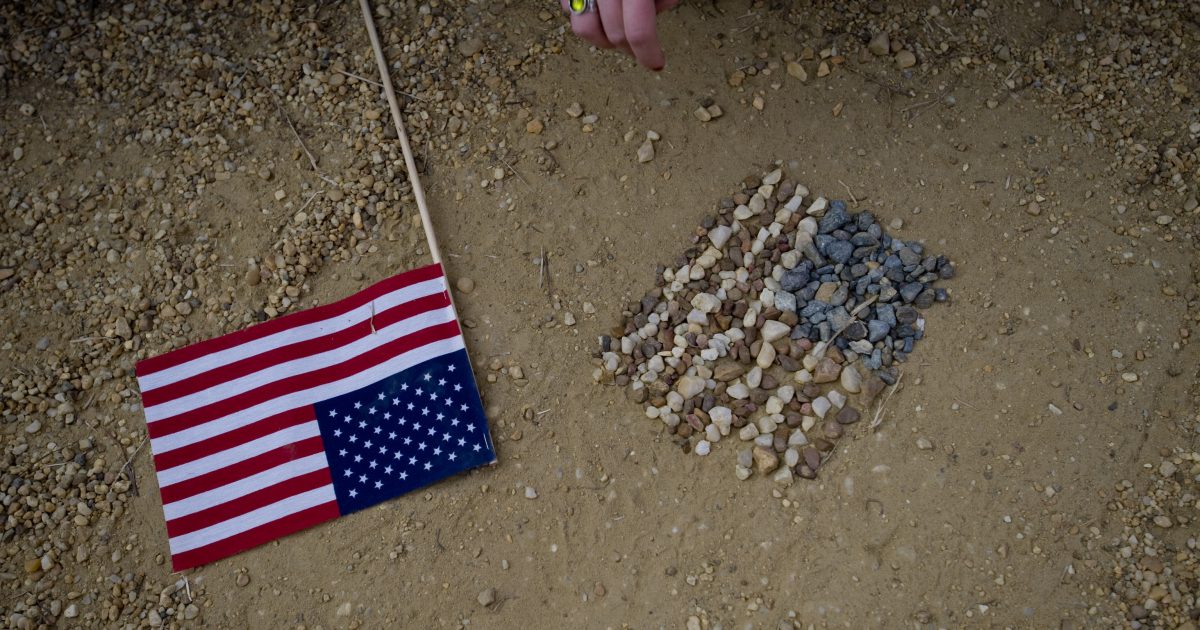
 صراط عشق صراط عشق
صراط عشق صراط عشق
